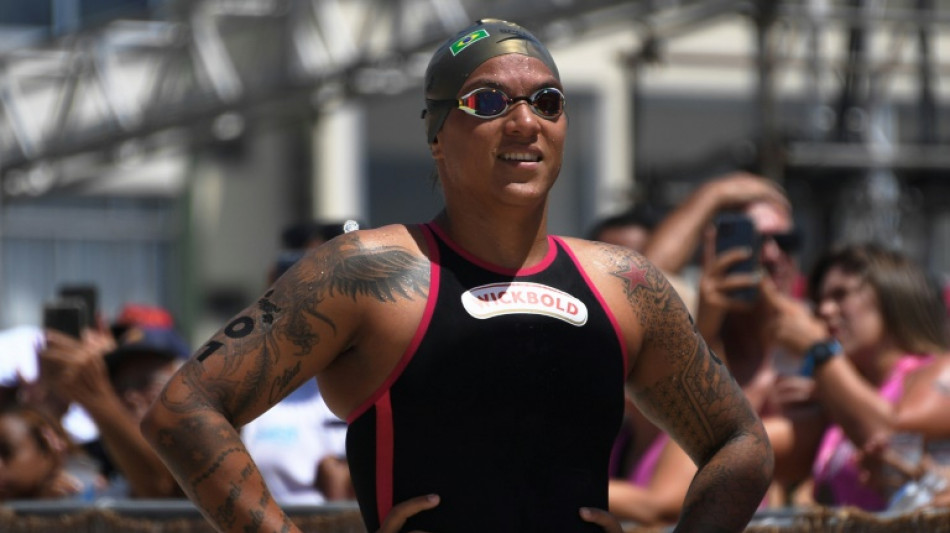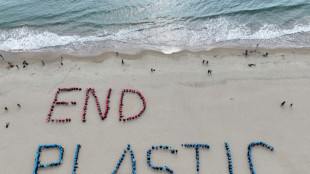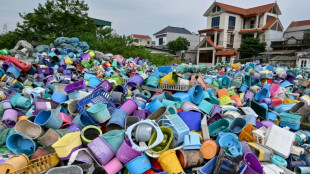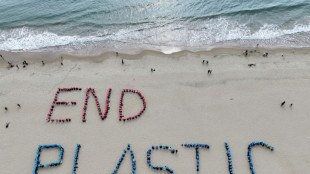
Paris must have 'plan B' for open water swimming: Olympic champ Cunha

Brazilian swimmer Ana Marcela Cunha, the reigning Olympic open water champion, has called on organisers of this year's Paris Games to draw up a "plan B" in case events cannot be held in the Seine due to poor water quality.
Last August, the marathon swimming test events were cancelled because the water was too dirty, as were the swimming legs on two of the four days of triathlon and para-triathlon tests.
Organisers have insisted "there is no plan B" but the Brazilian called for a rethink.
"It's a concern," Cunha told AFP in an interview on the sidelines of a competition on Rio de Janeiro's Copacabana beach.
"There was no test event last year because of this but (the organisers) insist on wanting the events to take place there.
"We need a plan B in case it's not possible to swim in the Seine," she said adding that difficulties in swimming in Paris were linked to an "infrastructure" problem.
"The Seine is not made for swimming," she said.
The organisers have deliberately chosen a route for the men's and women's 10-kilometre events that will showcase the beauty of the city.
But Cunha, 31, believes that is secondary to the health of the athletes.
"It's not a question of erasing the history of the Seine," she said.
"We know what the Pont Alexandre-III and the Eiffel Tower represent but I think that the health of the athletes must come first," she added.
"The organisers must accept that perhaps it will, unfortunately, not be possible to hold the events where they want to."
With less than five months to go until the opening ceremony on July 26, river water quality continues to give organisers sleepless nights.
French authorities have spent 1.4 billion euros ($1.5 billion) upgrading sewage and storm water treatment facilities in the Paris region to improve the water quality of the Seine as well as its major tributary, the Marne.
Analyses carried out from 2015 to 2023, forwarded to AFP by Paris City Council, however, show wide variations last summer, with several peaks in the concentration of two bacteria indicative of faecal contamination.
From June to September last year, none of the 14 water sampling points in Paris matched the quality level set by European directives.
Swimability of the two rivers is supposed to be one of the great legacies of the Olympic and Paralympic Games with French President Emanuel Macron and Paris Mayor Anne Hidalgo both promising to take a dip.
Cunha, however, said there was a "before and after" when it came to water quality.
"On the day of the competition, there's not much to do," she said.
"But afterwards, once you're out of the water, you can fall ill a fortnight later," she said, tying the problems with the broader concerns facing the environment.
"Everything is linked to the way we treat nature, everyone has to play their part," she said, citing plastic pollution of the seas.
- 'Pressure and expectation' -
Despite the uncertainty over the location of the open water races, Cunha remains focused on her goal: retaining her title in her fourth Olympic Games.
It will be quite a challenge for the seven-time world champion, who is likely to face tough opposition from Germany's Leonie Beck and the Netherlands' Sharon van Rouwendaal, gold medallist at the Rio Games in 2016.
"I know that's what everyone expects," said Cunha, who underwent a shoulder operation in November 2022 and insisted she knows "how to handle pressure and expectations."
"I've been through a lot. I've had to have an operation and my rivals respect me. I'm going to be the person to beat but I'm calm about it."
Her record, going back to the South American Games in 2006 when she won two golds as a 14-year-old, make her one of the all-time greats of her sport. But she hedges as to whether Paris 2024 will be her swansong.
"As long as I'm happy and continue to progress, I don't want to set a date," she says. "I want to avoid the countdown."
(Y.Harris--TAG)

 London
London

 Manchester
Manchester
 Glasgow
Glasgow
 Dublin
Dublin
 Belfast
Belfast
 Washington
Washington
 Denver
Denver
 Atlanta
Atlanta
 Dallas
Dallas
 Houston Texas
Houston Texas
 New Orleans
New Orleans
 El Paso
El Paso
 Phoenix
Phoenix
 Los Angeles
Los Angeles



